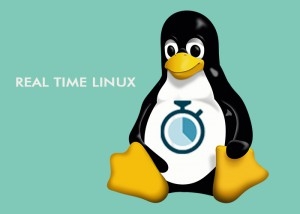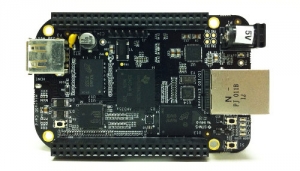Real time Linux training

Real-time applications are applications that deliver results within a certain time. This concept is called determinism, according to me which nothing happens by chance, every event can be predicted with certainty.
A hard real time linux system is able to guarantee the determinism of the system. This does not mean that the system will be faster, but simply more predictable.
This course provides all the information necessary to understand the techniques available for transforming Linux into a Real Time system.
Real time linux with PREEMPT_RT allows using recent kernels that support these new features.
Real time linux with Xenomai, is based on a double I-Pipe kernel where applications are seen as kernel modules.
Details
- Duration: 1 day (from 9:00 to 18:00)
- Type: ~ 50% presentations, ~ 50% practical exercises
- Slides language and material provided: English
- Oral presentation language: Italian or English
- Number of participants: maximum 10 people
Equipment required
Each participant must have a Laptop on which a Virtual Machine provided by the teacher at the beginning of the course will be installed. All the necessary material is provided by Koan except the PC. Therefore participants must have their own laptop with:
- Laptop PC with at least 8 GB of RAM and 40 GB of free disk space.
- Virtual Box installed (downloadable from here).
- We will work with Lubuntu Desktop 22.04 (64 bit). (We don’t support other distributions, because we can’t test all possible versions).
- Internet connection (direct or through the company proxy).
- For security reasons it is necessary that each participant backup their computer before the course.
Hardware used
The practical exercises will be run on a BeagleBone Black with a Cortex ARM CPU provided on loan during the course.

All exercises will be applicable to any other type of board supported by Linux.
Prerequisites
To get the best results from this course it is advisable to know the following topics:
- Knowledge of embedded Linux as described in our embedded Linux training
- Basic knowledge of the command line shell
- Programming knowledge C
- Experience with Embedded GNU / Linux (kernel, user space, root file system, tools)
- Practice of Unix or GNU / Linux commands
- Cross-compilers
- Linux kernel
Course structure
Prossimi Corsi Teal Time
Prossimi Corsi
| Date | Type | Location | Language | Book |
| 19/02/2026 - 25/02/2026 | Linux Embedded and Yocto Project training | italiano | Book |
- Date: 19/02/2026 - 25/02/2026
Topic: Linux Embedded and Yocto Project training
Location:
Language: italiano
Book a Seat


